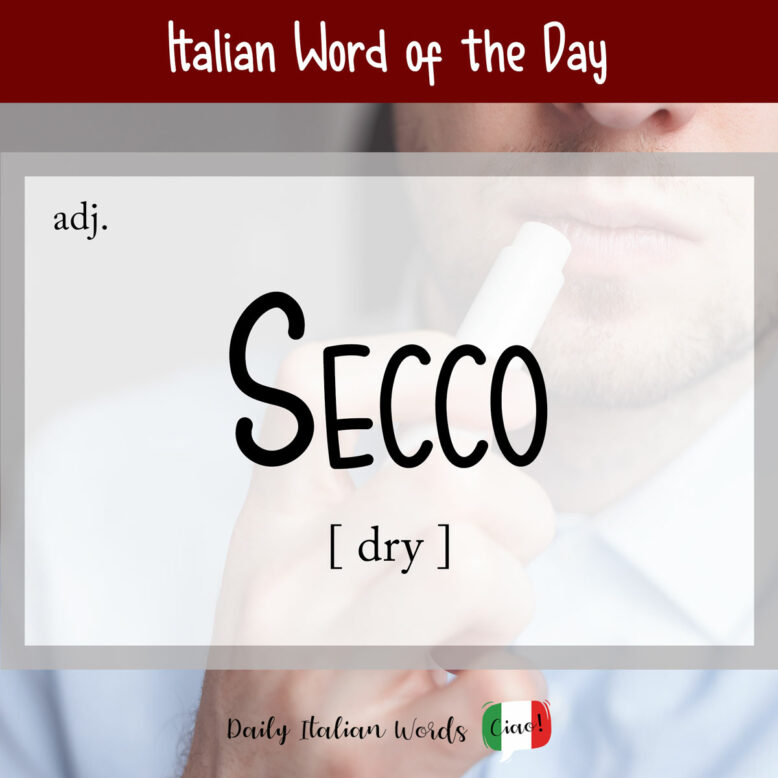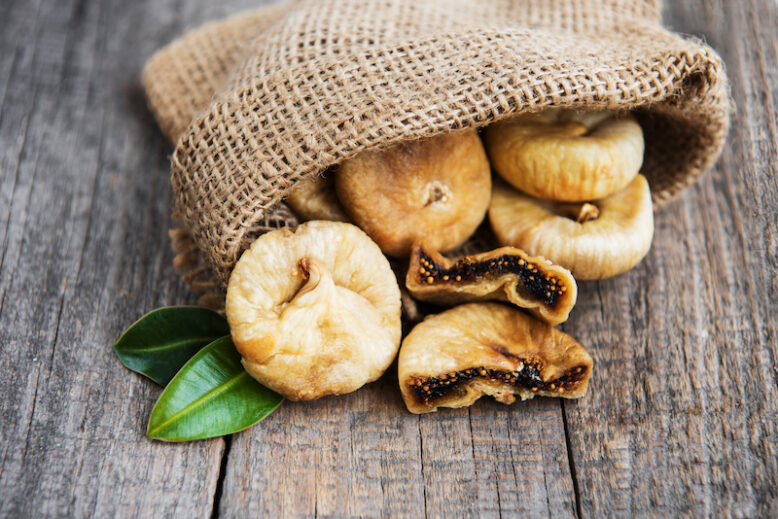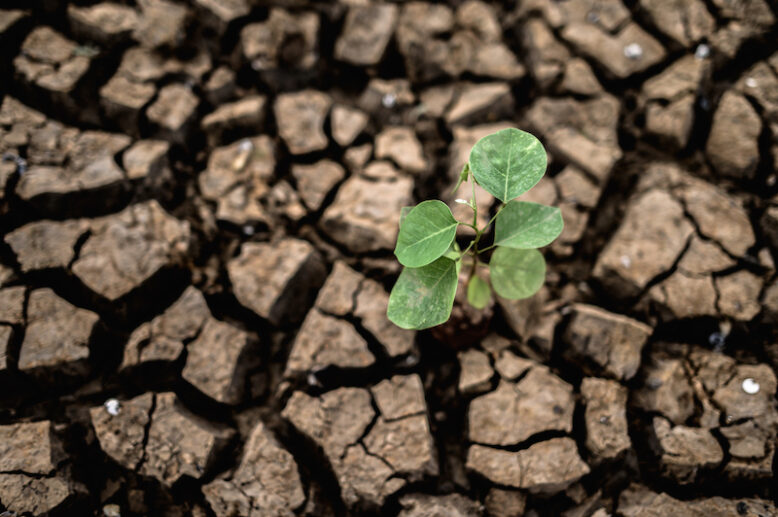Today we’re going to be looking at the Italian word secco, whose principal translation is dry in English. It comes from the Latin siccus of the same meaning.

Because secco is an adjective, the ending changes in accordance with the gender and/or plurality of the subject:
- secco = masculine, singular
- secca = feminine, singular
- secchi = masculine, plural
- secche = feminine, plural
Broadly speaking, secco can refer to anything that lacks or has lost its moisture, including land, climates, vegetation, food, and water sources to name just a few.
- vento secco = dry wind
- clima secco = dry/arid climate
- pane secco = dry/stale bread
- pelle secca = dry skin
- pozzo secco = dry well
- fiore secco = withered flower
- gola secca = dry/parched throat
- ghiaccio secco = dry ice
La legna secca brucia più velocemente della legna umida.
Dry wood burns more quickly than wet wood.
It may also describe things that have been dried or dessicated intentionally, typically for the purpose of preservation, such as carne secca (dried meat) or pesce secco (dried fish), as well as drinks, such as il vino secco (dry wine), that have little to no residual sugar content.

When the meaning is dry, secco also appears very frequently in the expression a secco. For example:
- muro a secco / murare a secco = dry stone wall / to dry-wall
- lavaggio a secco / lavare a secco = dry cleaning / to dry clean
- pila a secco = dry cell battery
In addition to dry or dried, secco also has a number of additional meanings, one of which is skinny or thin.
Mauro è diventato alto e secco, proprio come suo padre.
Mauro became tall and skinny, just like his dad.
Another possible meaning is curt, brusque, or sharp when used in reference to a person’s manner of speaking or behaving. In this sense of the word, it can also be used as an adverb (see second example).
Gli ha dato una risposta secca che non lasciava spazio a dubbi.
Gli ha risposto secco, così da non lasciare spazio a dubbi.
He gave him a curt response which left no room for doubt.
He replied curtly, so as to leave no room for doubt.
It can also mean clean or sharp, especially in the expression un colpo secco (a sharp blow / a slap).
Sara mi diede un colpo secco sulla spalla.
Sara slapped me on the shoulder.
Did you know that…?
Secco, in addition to being an adjective, is also a noun that can translates as dry land, dry waste, dry part, or dryness depending on the context.
– raccogliere il secco = to collect the dry waste
– tagliare il secco dalla pianta = to cut the dry part off the plant
– tempo di secco = a dry spell (lit. a time of dryness)
– tirare in secco una barca = to pull a boat onto dry land

Secco vs Asciutto – What’s the difference?
Although both words translate as dry in English, secco means that moisture is lacking in a place where it should be present. Asciutto, on the other hand, is used when something lacks water but doesn’t actually require it. For example, if you say ha i capelli secchi (he has dry hair), the implication is that the hair is lacking the necessary oil and moisture to be healthy, and is probably quite brittle. Swap secchi with asciutti, and the meaning become dry, in the sense that it’s not wet.
All this being said, in many cases the two terms are completely interchangeable (e.g. la gola secca vs la gola asciutta = dry throat; un clima secco vs un clima asciutto = a dry climate).
Some useful terms that share the same origin as secco include:
- seccare = to dry out (literal), to annoy (figurative)
- seccatore = a boring / annoying person
- essiccare = to desiccate
- seccatura = annoyance, nuisance
- seccato = dried out (literal), annoyed (figurative)
Idioms featuring the word ‘secco’
Essere a secco
Literal translation: to be dry
English meaning: to be broke (for a person) / to be out of gas (for a vehicle)
Rimanere / Restare a secco
Literal translation: to stay dry
English meaning: to be broke, to be left without resources
Fare secco (qualcuno)
Literal translation: to make dry (someone)
English meaning: to kill rapidly and without warning
Rimanerci / Restarci secco
Literal translation: to stay dry
English meaning: to drop dead, usually from a heart attack or accident
Essere secco come un chiodo / un’aringa
Literal translation: to be as skinny as a nail / a herring
English meaning: to be as skinny as a rake
Heather Broster is a graduate with honours in linguistics from the University of Western Ontario. She is an aspiring polyglot, proficient in English and Italian, as well as Japanese, Welsh, and French to varying degrees of fluency. Originally from Toronto, Heather has resided in various countries, notably Italy for a period of six years. Her primary focus lies in the fields of language acquisition, education, and bilingual instruction.


